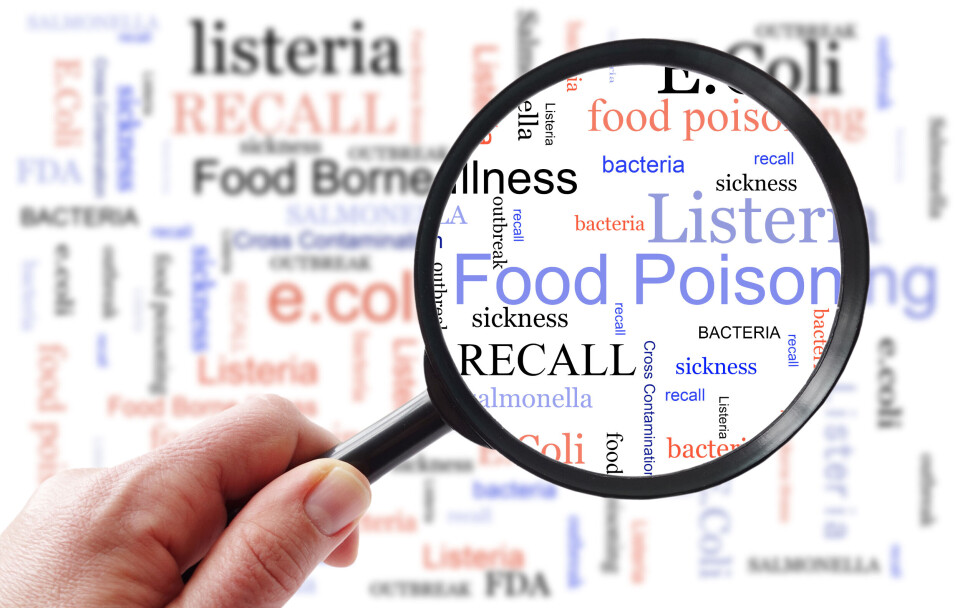-
Sex on work trip classified as workplace accident under French labour law
Classification requires employers inform the inspection du travail of the event within the 12 hours of an incident
-
Scam calls in France more than double in a year
Complaints about unsolicited calls are second only to those about fibre optic internet
-
‘Medical deserts’ major issue in upcoming local elections in France
Access to healthcare is now a more pressing concern than education, mayors say
Baguette, pizza, Kinder, cheese: How do food recalls work in France?
In recent weeks, recalls have included Buitoni frozen pizzas due to suspected E. coli, Kinder products linked to salmonella and different cheeses linked to listeria

Several popular food products have been recalled in France in recent weeks linked to various health risks.
Earlier this week, chocolate company Ferrero recalled several of its Kinder products in France and other countries just under two weeks before Easter, due to links to salmonella.
France’s health ministry has said that at least 15 suspected cases of salmonella have been linked to the Kinder chocolates, with mainly children falling ill.
Also this week, several types of cheese including brie, camembert and coulommiers were recalled from supermarkets such as Auchan, Leclerc, Super U, and Carrefour due to a potential risk of listeria.
On Friday, April 1 (and unfortunately it was not a joke), a mass recall of several types of breads was announced due to the products containing quantities of a chemical above regulated levels.
And last month frozen pizza brand Buitoni (owned by Nestlé) recalled its entire range of Fraîch'up pizzas from shops due to a risk of Escherichia coli (E. coli) bacteria in the dough.
We look into how recalls work in France, who issues them, which authorities are involved in investigating hygiene standards and how many recalls there are.
How many recalls are there and what products are affected?
Several thousand product recalls are in place at any one time in France.
As of today, April 7, there are 5,291 products listed on the government’s product recall platform, RappelConso. Of these, 4,388 are food or drink products, while the others are products linked to cars and transport, electronic appliances, home furniture, etc.
Breaking the food products down further, there are 1,731 milk and dairy products on the recall list, 567 meat products, 295 bread and bakery products and 363 diet and nutrition products, among others.
RappelConso was launched in France in April 2021 to improve communication and transparency between producers, shops and consumers.
Its existence has made it easier for media outlets and consumers to track recalls, bringing the topic more into focus.
Who is checking the products for health risks?
There are many different levels to this.
On the one hand, companies - for example supermarkets - have an obligation to carry out checks on their products and share the information if they detect any health risks.
They are also required to ensure that the hygiene standards are up to scratch along their whole supply line, Karine Jacquemart, director general of the NGO Foodwatch France told Franceinfo.
Consumers themselves can also report risks through the consumer complaint service website SignalConso.
Read more: How does France’s consumer complaint service SignalConso work?
Otherwise, the government and government-linked authorities also do checks on products.
This is mainly handled by the Direction générale de la concurrence, de la consommation et de la répression des fraudes (DGCCRF).
Alerts can also be issued at a European level from the European Rapid Alert system for dangerous products (for industrial products) or the Rapid Alert System for Food and Feed (for food products).
But investigations into food hygiene and risks can come from other sources too.
In 2019 (latest figures), 6,000 officers from different public bodies carried out 144,000 checks on sites in France and 126,000 checks on imports, a report from the Plan national de contrôles officiels pluriannuel de la France shows.
There is also the scientific side.
Medical laboratories around France are also testing samples from patients who have bacterial illnesses, looking at the strains of, for example, E. coli, Shigella or Salmonella and sending the results to the National Reference Centre (CNR) at the Institut Pasteur.
If a microbiologist notices the appearance of genetically identical strains, they send a report to the epidemiologists at public health authority Santé publique France (SPF), who can order an investigation, Sophie Lefèvre, deputy head of the CNR, told Franceinfo.
What happened in the case of the Buitoni pizzas and the Kinder chocolates?
It was through the medical laboratories testing samples that the E. coli risk in the Buitoni pizzas was discovered.
SPF and the CNR carried out an investigation into an increased number of infections and linked it back to the frozen pizzas.
The Kinder chocolates investigation started instead in the UK, Ms Lefèvre said.
SPF and the CNR were contacted by British health authorities notifying them of an outbreak of salmonella in the country, and inquiring whether the same was occurring in France.
The CNR then investigated and found human strains of salmonella identical to the ones discovered in the UK, leading to Ferrero issuing a recall on its products on April 5.
What happens after a recall is issued?
The DGCCRF will intervene to ensure that no there are no further risks regarding the product on recall.
In the case of the Buitoni pizzas, two inspections were carried out at a factory in Caudry (Nord) on March 22 and 29.
They revealed “a deteriorated level of food hygiene standards, which justified an order to cease industrial production activities in the plant”.
The inspectors also highlighted “the presence of rodents", as well as a "lack of maintenance and cleaning of manufacturing, storage and transit areas".
Related articles
Recall alert: French supermarket cheese recalled due to listeria risk
E. coli risk: Buitoni recalls all Fraîch’up frozen pizzas in France
Kinder chocolates recalled in France in run up to Easter
Intermarché, E.Leclerc, Netto, U: Baguettes recalled around France
























